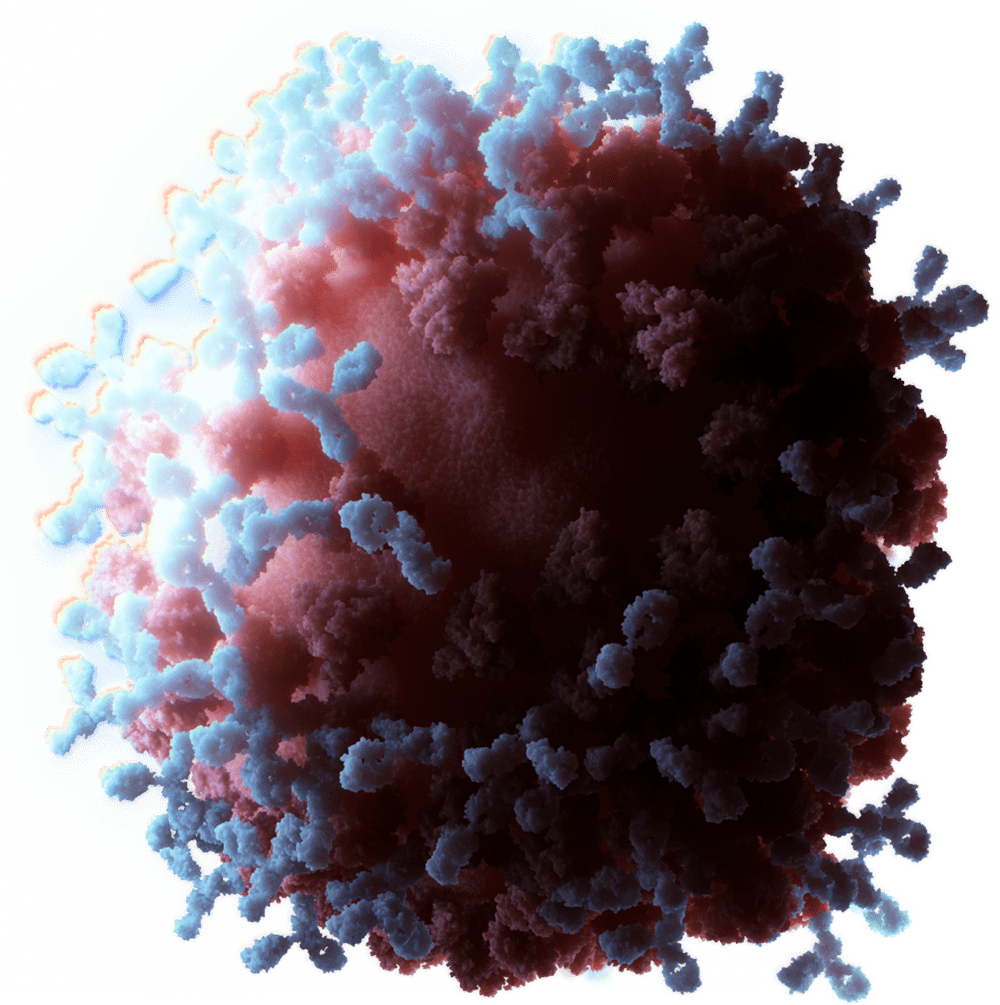Here at UW Biochemistry, there are a number of scientists who dedicate their free time to engaging with the community. Their efforts make our department, our university, and our communities a better place to live and work. Below, we’ve highlighted the often unrecognized work of some of these scientists, at all levels within the department. If outreach work is something you might be interested in, please feel free to reach out to any of these scientists.
If you are a current member of the department who would like to be featured, please email reggiano@uw.edu.
Community volunteer work
Rose King, Research Scientist, Davis Lab
Email: rosek74@uw.edu
 For the last two years, I’ve spent my Monday nights at Rising Out Of The Shadows, or “ROOTS.” At ROOTS we provide dinner, bathroom access, laundry service, a place to sleep, and a welcoming environment for youths and young adults experiencing homelessness.
For the last two years, I’ve spent my Monday nights at Rising Out Of The Shadows, or “ROOTS.” At ROOTS we provide dinner, bathroom access, laundry service, a place to sleep, and a welcoming environment for youths and young adults experiencing homelessness.
I have found my place at ROOTS. I have so much in common with the people with whom I volunteer, as we clearly share some core values. But, due to my particular socioeconomic background, I also have so much in common with the young adults I meet there. I place my friendships at ROOTS among the most important ones I have in Seattle.
Plus, ROOTS is only a 10-minute walk from HSB, so it’s a commitment that is easy to keep.
Erin Yang, Graduate Student, Baker lab
Email: erinyang@uw.edu
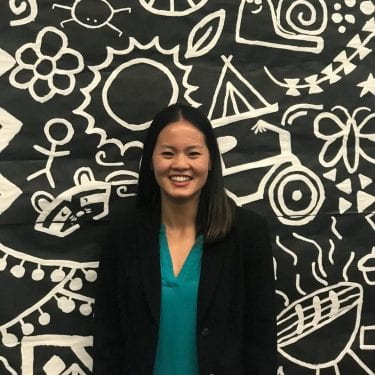 I’m interested in improving DEI culture starting with our own academic community. I believe that Diversity, Equity, Inclusion, and Justice must reach in and reach out. I am a member of the RosettaCommons Diversity, Equity, and Inclusion Committee, where I help the RosettaCommons plan outreach events, supply funding sources, and host conversations among 50+ labs worldwide. This year, for our virtual Rosetta Community conference, I organized DEI the keynote speaker, and led 3 sessions discussing how each individual at that session can do something about gender discrimination in STEM.
I’m interested in improving DEI culture starting with our own academic community. I believe that Diversity, Equity, Inclusion, and Justice must reach in and reach out. I am a member of the RosettaCommons Diversity, Equity, and Inclusion Committee, where I help the RosettaCommons plan outreach events, supply funding sources, and host conversations among 50+ labs worldwide. This year, for our virtual Rosetta Community conference, I organized DEI the keynote speaker, and led 3 sessions discussing how each individual at that session can do something about gender discrimination in STEM.
I am also the organizer of Women in Science lunch seminars at the Institute for Protein Design. Every month, I help members of the lab who volunteer to lead a Women in Science lunch to sort out a discussion topic and provide guidance on moderating a discussion for IPD members. Example topics range from discussing a paper about discrimination in STEM, watching a movie about how women in science have been affected throughout history, and how to use your own privilege to help others within and outside the lab.
As a part of TEDxUofW, I gave a TEDx talk about “a hidden pattern in life”: How the concept of symmetry in my own research and womens’ contributions to science are both commonly overlooked.
Outside of the University, I am passionate about giving kids an early start to science, starting at the middle school level, with the Expanding your Horizons program.
Mentoring students
Sam Witus, Graduate student, Klevit Lab
Email: wituss@uw.edu
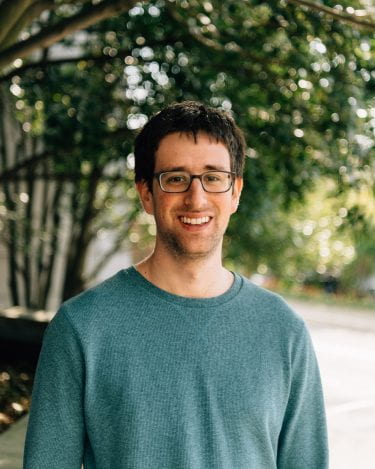 I serve as a mentor and judge every year for the Shoreline Community College BioExpo. This event brings together community mentors with high school students from around the PNW to create a project centered around Biotech/Health. As a mentor, I am paired with 1-2 students every year. My role is to guide them in choosing their project, finding resources, and editing. At the culmination of the project, the students present their work at the BioExpo and are judged by a group of community volunteers. It is an excellent opportunity to engage with high school students and help get them excited about a future in biology-related science!
I serve as a mentor and judge every year for the Shoreline Community College BioExpo. This event brings together community mentors with high school students from around the PNW to create a project centered around Biotech/Health. As a mentor, I am paired with 1-2 students every year. My role is to guide them in choosing their project, finding resources, and editing. At the culmination of the project, the students present their work at the BioExpo and are judged by a group of community volunteers. It is an excellent opportunity to engage with high school students and help get them excited about a future in biology-related science!
Jenny Bocanegra, Graduate Student, Hoppins Lab
Email: jlboca42@uw.edu
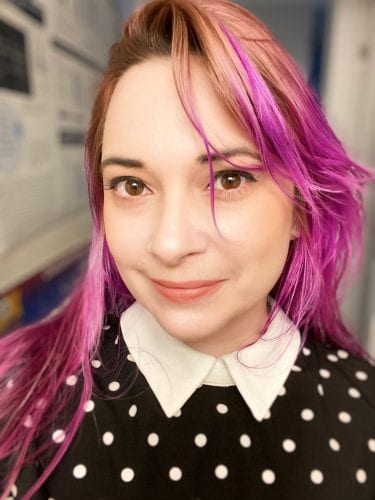 Growing up, I didn’t know I could be a scientist. Later in life, I was lucky to find role models that inspired me, and now I aim to pay it forward. I am currently a mentor for the program Seeds of Success, which aims to increase the participation of Hispanic women in STEM. The program targets middle and high school girls throughout my home country of Puerto Rico and provides them with tools and resources to aid them in developing their leadership skills, as well as make them aware of the possible career opportunities there are for women in STEM.
Growing up, I didn’t know I could be a scientist. Later in life, I was lucky to find role models that inspired me, and now I aim to pay it forward. I am currently a mentor for the program Seeds of Success, which aims to increase the participation of Hispanic women in STEM. The program targets middle and high school girls throughout my home country of Puerto Rico and provides them with tools and resources to aid them in developing their leadership skills, as well as make them aware of the possible career opportunities there are for women in STEM.
As the program slogan so beautifully puts it: “IF we support a girl in STEM, THEN she can change the world.”
Additionally, I have recently volunteered for the program “Girls in Science” organized by the Burke Museum. This program introduces middle school girls to women in STEM and a variety of STEM careers through workshops that showcase the work of female STEM professionals. My task was to ensure that the girls were engaged and enjoying the workshops, and to facilitate communication to non-native English speakers.
Liangcai Gu, Principal Investigator
Email: gulc@uw.edu
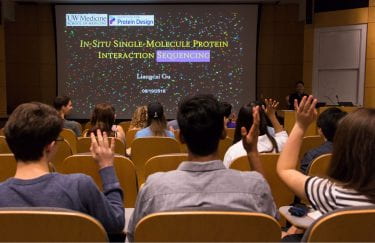 I have been serving as a mentor of UW International Genetically Engineered Machine (iGEM) teams since 2016, and my lab members have supported students on their summer research and lab businesses such as budgeting, purchasing, safety issues, etc. In past years, the team annually recruited ~50 undergraduates, ~50% female and ~15-20% minorities. In the 2018 summer, the iGEM team organized the 1st Pacific Northwest Meetup by inviting high school and college students from the local iGEM community in Tacoma and Seattle including Tacoma RAINmakers and iTESLA-SoundBio. During the meeting, I talked about our research on protein engineering and DNA sequencing technologies (a photo is included in the folder).
I have been serving as a mentor of UW International Genetically Engineered Machine (iGEM) teams since 2016, and my lab members have supported students on their summer research and lab businesses such as budgeting, purchasing, safety issues, etc. In past years, the team annually recruited ~50 undergraduates, ~50% female and ~15-20% minorities. In the 2018 summer, the iGEM team organized the 1st Pacific Northwest Meetup by inviting high school and college students from the local iGEM community in Tacoma and Seattle including Tacoma RAINmakers and iTESLA-SoundBio. During the meeting, I talked about our research on protein engineering and DNA sequencing technologies (a photo is included in the folder).
Hugh Haddox, Postdoctoral Scientist, Baker lab
Email: haddox@uw.edu
 I am passionate about improving public schools. So, for the past two years, I’ve been volunteering once a week in a physics class at a local high school. I help out the teacher by assisting groups of students in hands-on labs and filling out worksheets. I’ve enjoyed doing this because I get to interact with students from many different backgrounds, and because I feel like I can really help out the teacher, whose attention is often spread thin across a large classroom of students. If you’re interested in volunteer opportunities like this, most public schools have volunteer coordinators who can set you up!
I am passionate about improving public schools. So, for the past two years, I’ve been volunteering once a week in a physics class at a local high school. I help out the teacher by assisting groups of students in hands-on labs and filling out worksheets. I’ve enjoyed doing this because I get to interact with students from many different backgrounds, and because I feel like I can really help out the teacher, whose attention is often spread thin across a large classroom of students. If you’re interested in volunteer opportunities like this, most public schools have volunteer coordinators who can set you up!
Citizen Science
Michael Ailion, Principle Investigator
Email: mailion@uw.edu
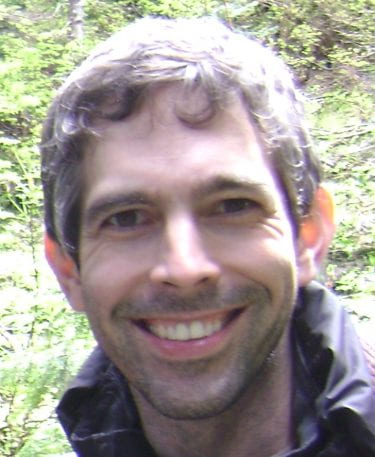 I have a project with a number of high school classes around the greater Seattle area. Students collect rotten fruit which is the normal habitat for many species of nematode worms that our lab is studying. The students collect the fruit (and sometimes isolate the worms too depending on the class) and my lab then sequences genes that can be used as molecular barcodes to identify the species. We send the sequences back to the students and teach them how to use freely available tools on the Internet to figure out what species of worms they found. These new strains and species are useful for our lab’s work on speciation. So the students get to participate as citizen scientists in a real research project, and learn some basic bioinformatics as well, while my lab and the greater scientific community benefit by getting new strains and species of the worms. During my visits to the schools, I also try to inspire more students to be interested in science and change their preconceptions of who scientists are and what scientists do. I am looking to expand this project so anyone interested in participating should get in touch with me.
I have a project with a number of high school classes around the greater Seattle area. Students collect rotten fruit which is the normal habitat for many species of nematode worms that our lab is studying. The students collect the fruit (and sometimes isolate the worms too depending on the class) and my lab then sequences genes that can be used as molecular barcodes to identify the species. We send the sequences back to the students and teach them how to use freely available tools on the Internet to figure out what species of worms they found. These new strains and species are useful for our lab’s work on speciation. So the students get to participate as citizen scientists in a real research project, and learn some basic bioinformatics as well, while my lab and the greater scientific community benefit by getting new strains and species of the worms. During my visits to the schools, I also try to inspire more students to be interested in science and change their preconceptions of who scientists are and what scientists do. I am looking to expand this project so anyone interested in participating should get in touch with me.
Science communication
Grace Hamilton, Research Scientist, Davis lab
Email: ghamilto@uw.edu
 I believe that communicating with the public is some of the most important and rewarding work a scientist can do. When I was a graduate student, I moonlighted as a science correspondent for Town Hall Seattle, presented my research there, and shared science communications skills with other scientists both at the University of Washington and at national conferences through the ENGAGE program. I currently produce a podcast called “Phosphorus” that shares the research and personal stories of biochemists at UW with the public.
I believe that communicating with the public is some of the most important and rewarding work a scientist can do. When I was a graduate student, I moonlighted as a science correspondent for Town Hall Seattle, presented my research there, and shared science communications skills with other scientists both at the University of Washington and at national conferences through the ENGAGE program. I currently produce a podcast called “Phosphorus” that shares the research and personal stories of biochemists at UW with the public.
Jacob O’Connor, Graduate Student, Baker lab
Email: oconnojj@uw.edu
 I’m really interested in public science communication. I think it’s important that scientists are able to share their work with anyone, not just their colleagues. I try to do this partially through volunteer work at the Pacific Science Center and the Science at the Market. I also help manage a course for other graduate students on how to present your research to a general audience. As part of that group I’ve spoken at Town Hall Seattle and I help run workshops for departments and conferences.
I’m really interested in public science communication. I think it’s important that scientists are able to share their work with anyone, not just their colleagues. I try to do this partially through volunteer work at the Pacific Science Center and the Science at the Market. I also help manage a course for other graduate students on how to present your research to a general audience. As part of that group I’ve spoken at Town Hall Seattle and I help run workshops for departments and conferences.
